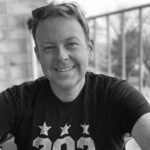Saturday, January 29, 2022
10:00 am – 3:00 pm, Eastern Standard Time
Facilitators: Novice Priests Jissan Nicolle and Taido Strube
The Sandokai is a poem written in the 8th century by our Chinese Zen ancestor Seiko Kisen, (700-790). It is a fundamental text of the Soto Zen school and chanted regularly in Zen temples throughout the world, including here at Bread Loaf Mountain. The text expresses a foundational concept in Zen teachings: the unity of the relative (difference) and absolute (oneness).
In this day of practice and study together, we will explore the history of the Sandokai and reflect upon how its teachings are present in our own understanding and experience of oneness, difference, and the harmony of oneness and difference.
This program will be on Zoom.
Schedule
| Time (EST)
10:00 am – 3:00 pm |
| Session I (90 min)
Importance and History 10:00-11:30 am |
| Session II (75 minutes)
Exploring the Poem 11:45-1:00 pm |
| Session III (90 minutes)
Impact on you? 1:30-3:00 |
Facilitators
Jissan Michelle Nicolle, PhD, BCC, is a professional chaplain and novice Zen priest at Bread Loaf Mountain Zen Community. She graduated from the Upaya Buddhist Chaplaincy program in 2015 and was ordained as a lay minister by Roshi Joan Halifax in 2016. She completed a Clinical Pastoral Care (CPE) residency at Wake Forest Baptist Medical Center and was board certified by the Association of Professional Chaplains in 2018. Prior to chaplaincy, Dr. Nicolle was engaged as a researcher in behavioral neuroscience studying the neurobiology of cognitive decline in aging and Alzheimer’s disease. Jissan is currently employed as a spiritual care provider at the Wake Forest School of Medicine and Medical Center. In 2019, Jissan happily made the commitment to deepen her practice and study of the Dharma as a novice priest with Sensei Joshin Byrnes of Bread Loaf Mountain Zen Community
 Taido Strube (they/them) is a community engaged minister and novice priest at Bread Loaf Mountain Zen Community. Taido’s unpaid work focuses on providing material and emotional support to their neighbors through local harm reduction and mutual aid projects in the DC area. Their paid work is in designing and building Earth and planetary science satellites that help us understand where we are, where we’ve been, and where we’re going as an interconnected planet. They also enjoy running in the woods, reading, and exploring this beautiful and complex world with their family. A life-long resident of the DMV, they currently live in Maryland with their partner and daughter.
Taido Strube (they/them) is a community engaged minister and novice priest at Bread Loaf Mountain Zen Community. Taido’s unpaid work focuses on providing material and emotional support to their neighbors through local harm reduction and mutual aid projects in the DC area. Their paid work is in designing and building Earth and planetary science satellites that help us understand where we are, where we’ve been, and where we’re going as an interconnected planet. They also enjoy running in the woods, reading, and exploring this beautiful and complex world with their family. A life-long resident of the DMV, they currently live in Maryland with their partner and daughter.
The Identity of Relative and Absolute
The mind of the Great Sage of India
Is intimately conveyed west and east.
Among human beings are wise ones and fools
In the Way there is no teacher of north and south.
The subtle Source is clear and bright;
The branching streams flow in the dark.
To be attached to things is primordial illusion;
To encounter the absolute is not yet enlightenment.
All spheres, every sense and field
Intermingle even as they shine alone,
Interacting even as they merge,
Yet keeping their places in expressions of their own.
Forms differ primarily in shape and character
And sounds in harsh or soothing tones.
The dark makes all words one;
The brightness distinguishes good and bad phrases.
The four elements return to their true nature
As a child to its mother.
Fire is hot, water is wet,
Wind moves and the earth is dense.
Eye and form, ear and sound, nose and smell,
Tongue and taste, the sweet and sour:
Each independent of the other
Like leaves that come from the same root.
And though leaves and root must go back to the Source
Both root and leaves have their own uses.
Light is also darkness, But do not move with it as darkness.
Darkness is light; Do not see it as light.
Light and darkness are not one, not two
Like the foot before and the foot behind in walking.
Each thing has its own being
Which is not different from its place and function.
The relative fits the absolute
As a box and its lid.
The absolute meets the relative
Like two arrow points that meet in mid air.
Hearing this, simply perceive the Source, Make no criterion.
If you do not see the Way,
You do not see it even as you walk on it.
When you walk the Way you draw no nearer,
Progress no farther.
Who fails to see this
Is mountains and rivers away.
Listen, those who would pierce this subtle matter;
Do not waste your time by night or day!


